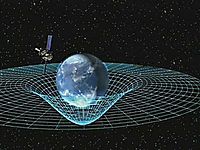
Photo from wikipedia
Mental images may be experienced in field (first-person) or observer (third-person) perspective. Compared to field, observer perspective has been shown to be less sensorially and emotionally evocative. Previous research suggested… Click to show full abstract
Mental images may be experienced in field (first-person) or observer (third-person) perspective. Compared to field, observer perspective has been shown to be less sensorially and emotionally evocative. Previous research suggested that images in obsessive–compulsive disorder (OCD) are predominately experienced in field perspective. We examined the impact of visual perspective on response to intrusive obsessional images, using autobiographical memory images as a control stimulus. Undergraduates (N = 153) imagined idiosyncratic obsessional scenarios and negative memories from their natural visual perspective, then re-imagined them from a field or observer perspective. At baseline, field perspective was positively associated with vividness and distress and OCD symptoms were associated with an observer perspective. Participants shifted to observer perspective reported reduced vividness of the obsessional image, whereas those shifted to field reported increased anxiety associated with the obsessional image. Memories showed a similar, but not identical, pattern of results. We discuss implications for imagery in OCD.
Journal Title: Cognitive Therapy and Research
Year Published: 2019
Link to full text (if available)
Share on Social Media: Sign Up to like & get
recommendations!